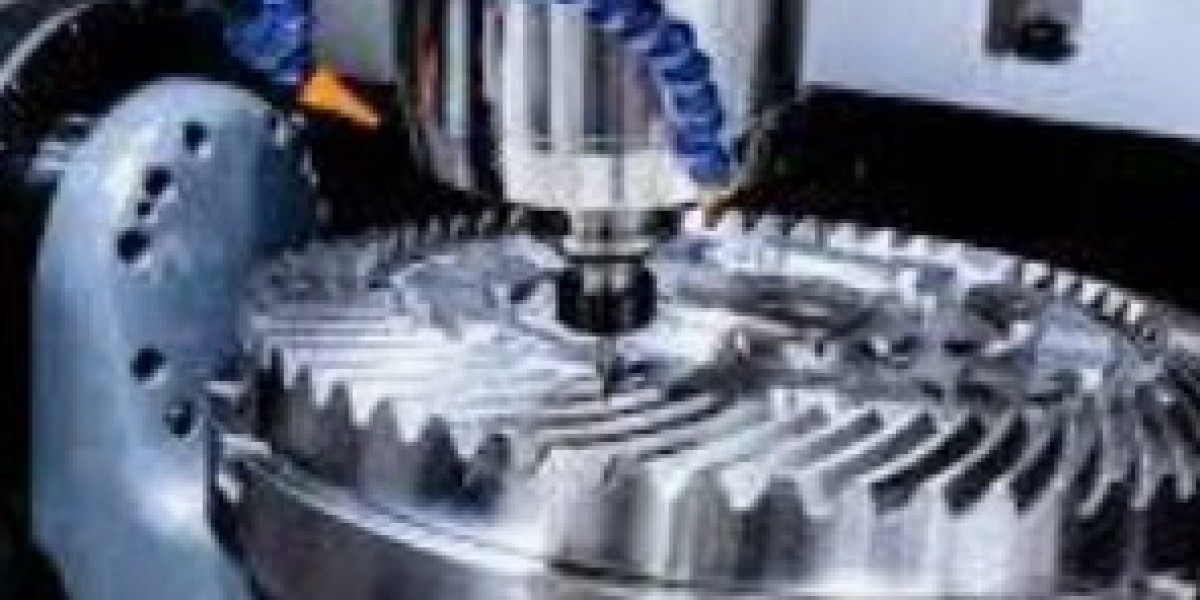Introduction
In the realm of modern manufacturing, technological advancements have played a pivotal role in increasing efficiency, precision, and automation. One such technological marvel that has significantly transformed the industry is CNC Machine technology. CNC (Computer Numerical Control) machining has revolutionized how parts and components are fabricated, ensuring high precision and repeatability. From automotive to aerospace, and even medical applications, CNC machining is the backbone of high-quality production processes.
What is CNC Machining?
CNC machining is a subtractive manufacturing process in which pre-programmed computer software dictates the movement of factory tools and machinery. The process involves cutting, milling, drilling, and turning raw materials into precise components. Unlike manual machining, where an operator must control the machine, CNC machining operates autonomously, reducing the likelihood of human error.
Components of a CNC Machine
A typical CNC Machine consists of various components that work together to ensure seamless operation. Some of these include:
Controller: The brain of the machine, which interprets and executes the program code.
Spindle: The rotating component that holds and moves the cutting tool.
Tool Changer: A mechanism that switches cutting tools based on the operation required.
Worktable: The platform where the material is secured for machining.
Drives and Motors: Responsible for precise movement along different axes.
How CNC Machining Works
The CNC process begins with a digital design created using CAD (Computer-Aided Design) software. This design is then converted into a CNC program, usually in G-code, which instructs the machine on how to cut, shape, and finish the material. The CNC machine follows these instructions with extreme accuracy, producing components that meet exact specifications.
Advantages of CNC Machining
1. High Precision and Accuracy
One of the standout benefits of CNC machining is its ability to produce components with remarkable accuracy. CNC machines can achieve tolerances as tight as 0.001 inches, making them indispensable for industries that demand high precision.
2. Increased Efficiency and Productivity
Since CNC Machine operations are automated, they significantly enhance productivity. These machines can operate 24/7 with minimal supervision, reducing downtime and maximizing output.
3. Consistency and Repeatability
Unlike manual machining, where variations can occur due to human intervention, CNC machining ensures consistent results every time. Whether producing a single prototype or mass-producing thousands of identical parts, CNC machines maintain uniformity.
4. Versatility in Material Processing
CNC machining is not limited to a single material. It can work with a variety of materials, including metals (aluminum, steel, titanium), plastics, composites, and even wood. This versatility makes CNC machining suitable for diverse industrial applications.
5. Cost-Effective in the Long Run
Although the initial investment in CNC machinery can be high, the long-term benefits outweigh the costs. Reduced labor costs, minimized material wastage, and enhanced efficiency contribute to overall cost savings.
Applications of CNC Machining
1. Automotive Industry
The automotive sector heavily relies on CNC Machine technology to manufacture engine components, transmission parts, and intricate car body structures. The precision and speed of CNC machining ensure high-quality vehicle components.
2. Aerospace and Defense
The aerospace industry demands extreme precision due to safety regulations. CNC machining is used to produce aircraft engine components, turbine blades, and fuselage structures with tight tolerances.
3. Medical Industry
CNC machining plays a vital role in the medical sector by manufacturing surgical instruments, prosthetics, implants, and diagnostic equipment. The ability to work with biocompatible materials ensures safe and reliable medical devices.
4. Electronics Industry
Precision is crucial in the electronics sector, where CNC machining is used to create circuit boards, connectors, and semiconductor components. The fine detailing and accuracy of CNC machines make them indispensable for this industry.
5. Industrial Equipment and Tooling
CNC machining is widely used to manufacture custom industrial tools, molds, and fixtures required in various manufacturing processes.
Future of CNC Machining
The future of CNC machining is promising, with continuous advancements in technology improving its capabilities. Some key trends shaping the future of CNC machining include:
1. Integration of Artificial Intelligence (AI)
AI-driven CNC machines can optimize machining parameters in real-time, reducing waste and improving efficiency. Predictive maintenance using AI can also help prevent machine failures and downtime.
2. 5-Axis CNC Machining
While traditional CNC machines operate on three axes (X, Y, Z), 5-axis machining allows for more complex geometries with higher precision. This advancement is particularly useful for aerospace and medical applications.
3. Additive and Hybrid Manufacturing
The integration of CNC machining with additive manufacturing (3D printing) is gaining traction. Hybrid machines can both add and subtract material, offering a new level of flexibility in manufacturing.
4. IoT and Industry 4.0
Internet of Things (IoT) technology is being incorporated into CNC machines, enabling remote monitoring, real-time data analysis, and improved machine-to-machine communication. Industry 4.0 will continue to drive automation and smart manufacturing.
Conclusion
CNC machining has transformed the manufacturing landscape by offering unparalleled precision, efficiency, and versatility. From small-scale workshops to large industrial production units, CNC technology remains a cornerstone of modern manufacturing. As advancements continue, the role of CNC Machine technology will expand, making it an essential tool for industries worldwide. Investing in CNC machining is not just about improving productivity—it’s about staying ahead in an increasingly competitive market.
For businesses looking to enhance their manufacturing capabilities, adopting CNC machining is a step toward higher quality, reduced costs, and increased efficiency. The future of manufacturing is here, and CNC machining is leading the way.








